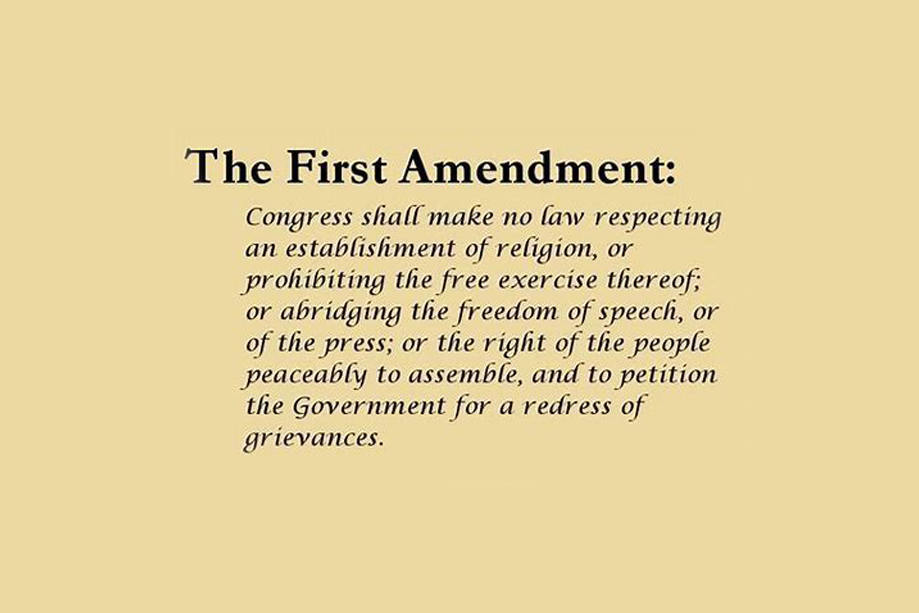Whether advocates for “speech moderation” and crusaders against “mis- and disinformation” are intentionally misleading or ignorant is difficult to say. I suspect it depends on the speaker. Most politicians probably are well aware that they seek to subvert constitutional rights for political purposes. The population at large, on all sides of all issues, is stunningly ignorant of history generally and constitutional history in particular. The United States of America was formed by ratification of the Constitution on June 21, 1788 by the requisite nine states. Four more followed with the last, Rhode Island, ratifying on May 29, 1790. Prior efforts at unification had proved ineffective. By adoption of the Constitution, the 13 sovereign states granted specified powers to the new federal government. They were induced to do so by the terms of the Constitution itself, the first ten amendments (the “Bill of Rights”), and effective advocacy by supporters. The 10th amendment made this crystal clear:
The powers not delegated to the United States by the Constitution, nor prohibited by it to the states, are reserved to the states respectively, or to the people.
Thus, the legal system in the United States consisted of the limited powers granted to the federal government and, within each state, the state constitution, laws adopted by state legislatures and common law. The common law system in all states (except for Louisiana) is patterned after the common law system of England. Under common law, private wrongs are redressed by litigation between private parties. Over time, court decisions clarify private causes of action and defenses. Private rights of action may also be created by statutes of states and the federal government. Courts interpret the meanings of statues through litigation. Over the years, the federal system contemplated by the founders has been very substantially eroded by unchallenged expansions of federal executive and legislative action, and by interpretation by courts of the powers of the executive and legislative branches. The government of the United States bears little resemblance to that envisioned by the founders. However, certain rights guaranteed by the Bill of Rights have been more resilient than others. The First Amendment, that includes freedom of speech, is first and foremost.
Congress shall make no law respecting an establishment of religion, or prohibiting the free exercise thereof; or abridging the freedom of speech, or of the press; or the right of the people peaceably to assemble, and to petition the government for a redress of grievances.
The 14th amendment (ratified July 9, 1868) extended the Bill of Rights to apply to state governments. It is generally recognized that “prior restraint” of speech violates the First (or 14th ) Amendment. That is, in general, the government (state or federal) may not prohibit speech. However, if the speech of an individual (or entity) causes damage to another person (or entity), the offender may seek redress of his grievance, usually under common law. Thus, the speaker cannot be prohibited from saying “Mr. X is a pedophile,” but Mr. X can sue the speaker and recover damages (subject to defenses such as the statement is true). Mr. X must prove that he was damaged by the speech in order to recover. There are lots of nuances and complications in this area of the law. For example, a private person, in general, may prohibit certain kinds of speech. The owner of Chuck’s Pizza may prohibit its employees from saying “Chucks Pizza sausage topping is made from ground humans” and the owner may fire the employee and sue the employee for defamation. A private citizen may say that “California is run by a bunch of nincompoops.” The state of California cannot prevent the citizen from saying that, but may sue for damages (not a strong case). If a government or person with authority to speak for a government says “biological men cannot get pregnant” or “all white people are racists,” biological men and white people may sue for damages. They cannot, however, legitimately petition the state or federal government to prohibit such statements or petition a court to interpret the Constitution of the US to prohibit them. Twitter can censor speech to its heart’s content, unless it is acting on behalf of a state or Federal government or a court, in normal judicial process, rules that it should be treated as having done so. If Twitter exercises no control over the content of tweets and a person tweets that Joe Biden is senile, Mr. Biden can sue for damages. The same goes in the case of someone tweeting that Donald Trump is a fat bastard with an orange wig or that Barack Obama was born on Pluto.


